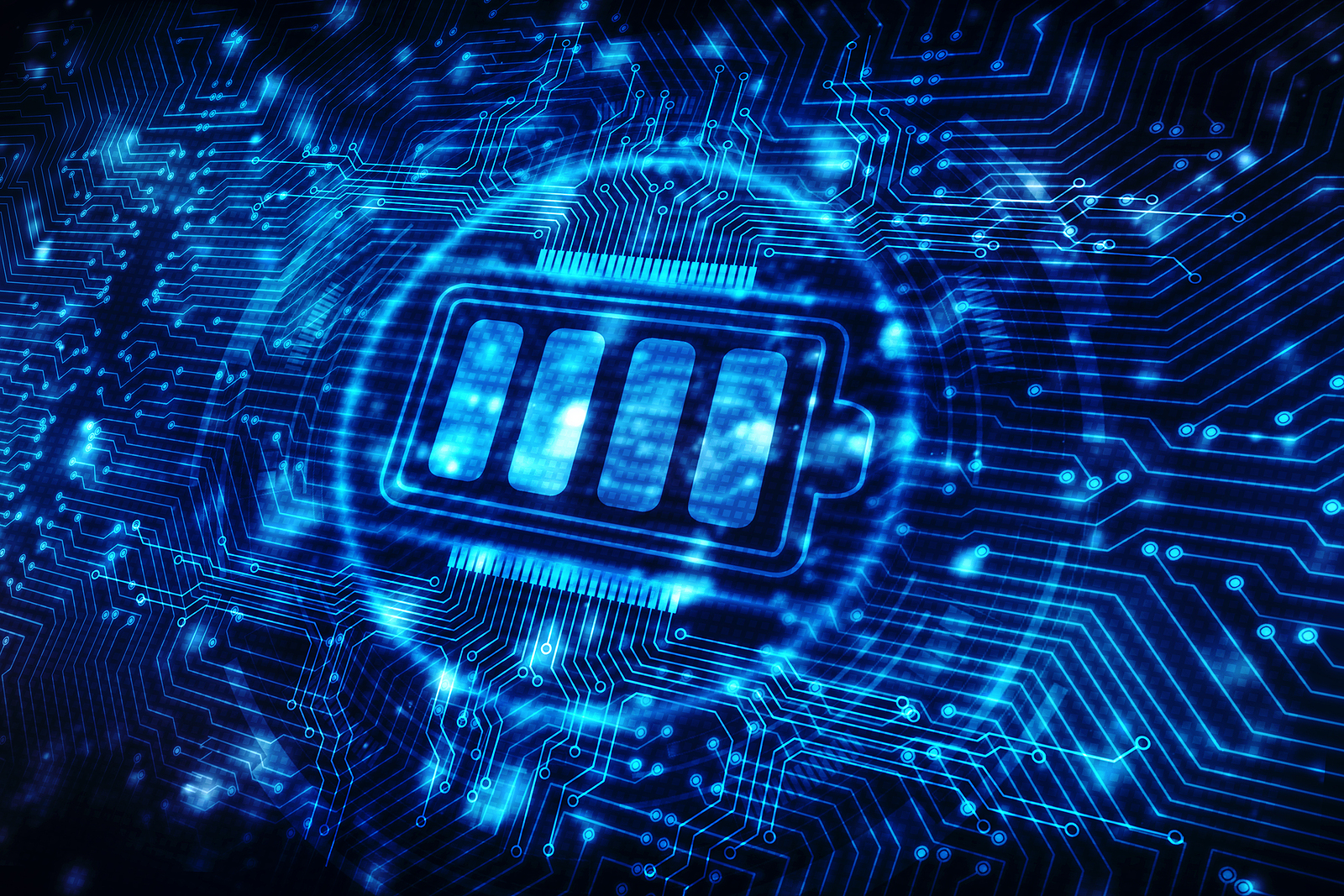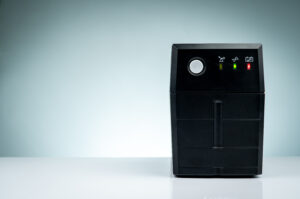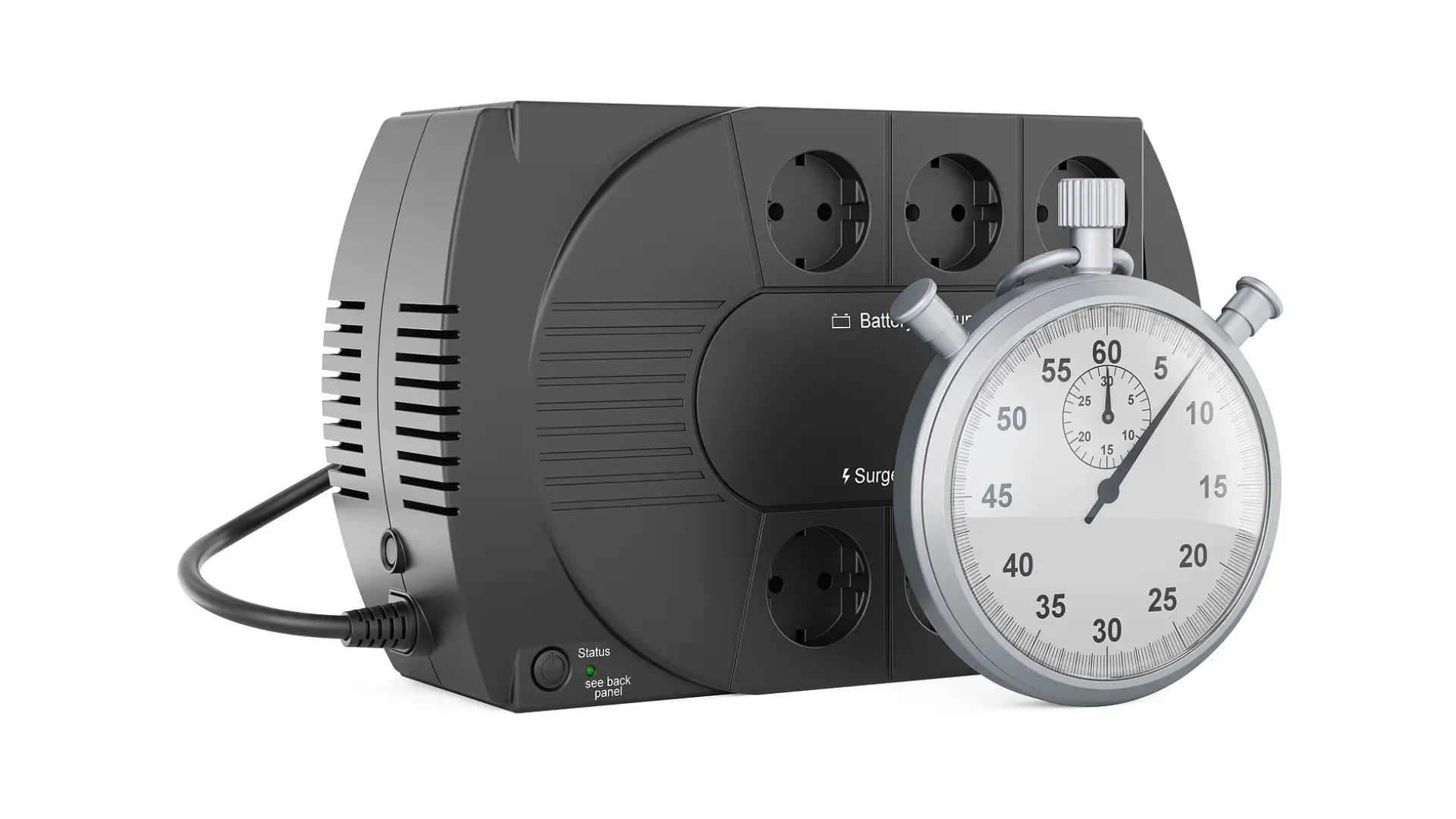
Uninterruptible Power Supply with Lithium-Ion Battery
In today's ever more digitized world, uninterrupted power supply (UPS) systems have become my lifeline, safeguarding both my daily routines and the smooth operation of my business. As technology continues to evolve, the array of UPS choices has expanded, and among these options, one innovation has truly caught my attention: the integration of lithium-ion batteries.
In this in-depth guide, I'm excited to share why I firmly believe that opting for an Uninterruptible Power Supply featuring a Lithium-Ion Battery is a game-changer, offering unmatched reliability and peace of mind in an increasingly power-dependent landscape.
Introduction to Uninterruptible Power Supply (UPS)
Before we dive into the advantages of lithium-ion batteries in UPS systems, let's start with a brief overview of what a UPS is and why it's essential.
What is a UPS?
A Uninterruptible Power Supply (UPS) is a sophisticated electrical apparatus that plays a pivotal role in safeguarding vital equipment and data against the adverse effects of power disruptions. These disruptions often occur when the primary power source, typically the mains electricity supply, experiences failures, interruptions, fluctuations, or outages.
UPS systems are ingeniously engineered to seamlessly and instantaneously bridge the gap between the loss of main power and the transition to a secondary power source, which is usually an internal battery or an auxiliary generator. By doing so, they ensure uninterrupted and consistent electrical power supply to connected devices and systems, thereby averting potential damage, data loss, and operational downtime.
These devices come in various sizes and configurations, catering to a wide range of applications, from protecting individual computers and small home setups to supporting entire data centers and industrial facilities. In essence, UPS systems act as a critical safety net for critical infrastructure and valuable electronic equipment, ensuring operational continuity and peace of mind in the face of unpredictable power-related challenges.
Why is a UPS Important?
The significance of a Uninterruptible Power Supply (UPS) is multifaceted and far-reaching due to its crucial role in addressing a range of power-related challenges. Here are some key reasons why a UPS is important:
- Data Protection: In the digital age, data is invaluable. Computers and servers often store critical data, and abrupt power outages pose a significant threat to this information. A UPS acts as a safeguard by providing a temporary power source, allowing sufficient time for a graceful shutdown of systems. This ensures that your data remains intact and uncorrupted, reducing the risk of data loss or corruption.
- Downtime Mitigation: Downtime can be a severe detriment, especially for businesses. Interruptions in operations can result in financial losses, decreased productivity, and damaged customer trust. A UPS plays a pivotal role in preventing downtime by seamlessly transitioning to its internal power source when the primary power supply fails. This uninterrupted power supply is particularly vital for businesses that rely on continuous, 24/7 availability of their systems and services.
- Equipment Protection: Electronic devices and equipment are susceptible to damage caused by sudden power surges, spikes, or outages. A UPS serves as a protective barrier, effectively functioning as a surge protector. It regulates the flow of electricity, ensuring that connected devices receive a stable and clean power supply. By doing so, it extends the lifespan of your valuable electronic equipment, reducing the need for frequent replacements and costly repairs.
- Voltage Regulation: In addition to safeguarding against power interruptions, UPS systems often feature voltage regulation capabilities. They can stabilize erratic voltage levels, correcting over-voltage or under-voltage conditions. This consistent voltage supply not only protects your equipment but also enhances their performance and efficiency.
- Safety During Maintenance: UPS systems also offer an advantage during scheduled maintenance or electrical work. They provide a seamless transition to backup power, allowing critical systems to continue running without interruption, even when the primary power source is intentionally disconnected.
- Energy Efficiency: Some advanced UPS models are designed to improve energy efficiency by reducing power wastage and optimizing power usage. This not only lowers electricity bills but also contributes to environmental sustainability.
Now that we understand the importance of a UPS let's delve into the advantages of using a Lithium-Ion Battery in these systems.

The Power of Lithium-Ion Batteries
For years, Uninterruptible Power Supply (UPS) systems have predominantly relied on lead-acid batteries to store and deliver power during electrical outages. However, in recent times, lithium-ion batteries have risen to prominence as a superior alternative. The following points highlight why lithium-ion batteries have become a game-changer in UPS technology:
Higher Energy Density
Lithium-ion batteries exhibit a remarkable increase in energy density when compared to lead-acid batteries. This means they can store a larger amount of energy in a smaller and lighter package. Consequently, UPS systems equipped with lithium-ion batteries are more compact and easier to install, making them particularly advantageous in space-constrained environments.
Faster Recharge Times
A standout feature of lithium-ion batteries is their ability to recharge rapidly. They can go from being nearly empty to fully charged much quicker than their lead-acid counterparts. This attribute is critical for ensuring that your UPS is always ready to supply backup power at a moment's notice.
Longer Lifespan
Lithium-ion batteries boast a significantly extended lifespan compared to lead-acid batteries. While lead-acid batteries typically require replacement every three to five years, lithium-ion batteries can endure for up to a decade or more when properly maintained. This not only reduces long-term costs but also minimizes the inconvenience associated with frequent battery replacements.
Maintenance-Free Operation
Lead-acid batteries demand regular maintenance tasks such as topping off electrolyte levels and monitoring for leaks. Conversely, lithium-ion batteries are virtually maintenance-free. This makes them an attractive and hassle-free choice for UPS systems, especially in remote or unmanned locations.
High Efficiency
Lithium-ion batteries excel in energy conversion efficiency. They can deliver power with minimal energy loss, guaranteeing that critical equipment receives a stable and clean power supply during outages or voltage fluctuations.
Temperature Tolerance
Lithium-ion batteries exhibit excellent performance across a broad range of temperatures, making them suitable for diverse environments. They are less susceptible to temperature fluctuations compared to lead-acid batteries, which can experience reduced efficiency in extreme heat or cold conditions.
Scalability
Lithium-ion UPS systems offer scalability advantages. Additional battery modules can be easily incorporated to extend backup time or increase power capacity without necessitating the replacement of the entire system. This scalability feature ensures that UPS solutions can adapt to evolving power requirements.

Applications of UPS with Lithium-Ion Batteries
Having explored the advantages of lithium-ion batteries in UPS systems, it's essential to delve into the multifaceted applications where these advanced UPS solutions are making a significant impact:
Data Centers
Data centers serve as the digital nerve centers of our interconnected world, hosting vast volumes of critical data. Any interruption in power can lead to data loss and substantial financial setbacks. Lithium-ion UPS systems have become the preferred choice for data centers due to their unwavering reliability and rapid response time. They ensure seamless power continuity, safeguarding invaluable data and maintaining online services.
Healthcare Facilities
Hospitals and healthcare institutions rely on an uninterrupted power supply to sustain life-saving equipment, such as ventilators and critical patient records. Lithium-ion UPS systems are instrumental in delivering uninterrupted power to these vital healthcare services, ensuring patient safety and the integrity of medical records.
Manufacturing Plants
Manufacturing processes often involve sophisticated and sensitive equipment, as well as automated systems that cannot afford downtime. Lithium-ion UPS systems are indispensable in this context, providing the necessary power to keep production lines running smoothly and preventing costly interruptions to manufacturing operations.
Telecommunications
In an era of constant connectivity, seamless communication is essential. Telecommunication providers utilize lithium-ion UPS systems to maintain network uptime and ensure that critical services, including emergency communications, remain operational during power disturbances. These systems are vital in sustaining reliable and uninterrupted connectivity for businesses and individuals alike.
Financial Institutions
Banks and financial institutions handle vast amounts of sensitive data and transactions daily. Any disruption in power can disrupt financial operations, leading to potential financial losses and data security breaches. Lithium-ion UPS systems play a pivotal role in safeguarding the operations of financial institutions, ensuring the continuity of critical services and the protection of sensitive financial data.
Retail Stores
Retail stores heavily rely on electronic point-of-sale (POS) systems and advanced inventory management software. A power outage can disrupt sales transactions, inventory tracking, and customer service. Lithium-ion UPS systems are essential in maintaining the operational integrity of these systems during outages, helping retailers provide a seamless shopping experience to customers and ensuring business continuity.
Cost Considerations

When contemplating the adoption of lithium-ion UPS systems, it is imperative to take into account various cost considerations. While these advanced systems present a range of benefits, including enhanced performance and longevity, there are specific financial aspects that warrant attention:
- Initial Investment: Lithium-ion UPS systems typically entail a higher upfront cost compared to traditional lead-acid UPS systems. This initial expense encompasses not only the purchase of the UPS unit itself but also the lithium-ion batteries and associated components. Organizations must assess their budgetary constraints and weigh this upfront expenditure against the long-term advantages.
- Long-Term Savings: Despite the higher initial cost, lithium-ion UPS systems often result in substantial long-term savings. This is primarily attributed to their extended battery life and reduced maintenance requirements. While lead-acid batteries may necessitate replacement every three to five years, lithium-ion batteries can endure for up to a decade or more with proper care. The decreased frequency of battery replacements and the associated costs can significantly offset the initial investment over time.
- Maintenance Costs: Lithium-ion batteries are renowned for their minimal maintenance needs. Unlike lead-acid batteries, which require periodic maintenance tasks such as electrolyte level checks and potential leak monitoring, lithium-ion batteries are virtually maintenance-free. This not only reduces ongoing maintenance costs but also mitigates the risk of unexpected expenses associated with battery upkeep.
- Operational Continuity Benefits: Consider the financial implications of uninterrupted operation when assessing the cost of a lithium-ion UPS system. In industries where downtime can result in substantial financial losses, such as data centers or manufacturing plants, the cost of a power disruption far outweighs the investment in a reliable UPS system. Maintaining continuous operation during power interruptions can protect revenue streams and customer trust.
- Total Cost of Ownership (TCO): To evaluate the cost-effectiveness of lithium-ion UPS systems comprehensively, organizations should calculate the Total Cost of Ownership (TCO). This assessment includes not only the initial purchase price but also ongoing operational costs, maintenance expenses, and potential savings accrued from extended battery life and reduced downtime.
- Scalability Considerations: Another financial aspect to contemplate is the scalability of lithium-ion UPS systems. While they may initially cost more, the ability to scale these systems by adding additional battery modules can provide flexibility and cost-efficiency in meeting evolving power requirements.
Uninterruptible Power Supply (UPS) systems with Lithium-Ion Batteries FAQs
1. What is a UPS system with a Lithium-Ion Battery?
A UPS system with a Lithium-Ion Battery is a power backup solution that uses advanced Lithium-Ion batteries to provide uninterrupted electrical power in the event of a mains power failure or disruption. These UPS systems are designed for various applications, from protecting critical data to ensuring continuous operation in businesses.
2. How does a UPS system with a Lithium-Ion Battery work?
These UPS systems work by storing electrical energy in Lithium-Ion batteries when the primary power source is available. In case of a power outage or disruption, the UPS instantly switches to battery power, ensuring a seamless and uninterrupted supply of electricity to connected devices and systems.
3. What are the advantages of Lithium-Ion batteries in UPS systems?
Lithium-Ion batteries offer several advantages, including higher energy density, faster recharge times, longer lifespan, maintenance-free operation, high energy conversion efficiency, temperature tolerance, and scalability. These benefits make them a superior choice compared to traditional lead-acid batteries.
4. Where are UPS systems with Lithium-Ion Batteries commonly used?
These UPS systems are used in various applications, including data centers, healthcare facilities, manufacturing plants, telecommunications, financial institutions, retail stores, and more. They are ideal for environments where uninterrupted power supply is critical.
5. Are UPS systems with Lithium-Ion Batteries more expensive than traditional UPS systems?
Yes, UPS systems with Lithium-Ion Batteries typically have a higher upfront cost compared to traditional lead-acid UPS systems. However, they often result in long-term savings due to their extended battery life, reduced maintenance costs, and the avoidance of downtime-related financial losses.
6. How do I calculate the Total Cost of Ownership (TCO) for a UPS system with Lithium-Ion Batteries?
To calculate the TCO, consider the initial purchase price, ongoing operational costs, maintenance expenses, and potential savings accrued from extended battery life and reduced downtime. This comprehensive assessment will help you determine the cost-effectiveness of such a UPS system.
7. Can I easily expand the capacity of a UPS system with Lithium-Ion Batteries?
Yes, many Lithium-Ion UPS systems offer scalability advantages. Additional battery modules can be easily added to extend backup time or increase power capacity without the need to replace the entire system. This makes them flexible and cost-effective in meeting evolving power requirements.
8. Are Lithium-Ion batteries safe for use in UPS systems?
Yes, Lithium-Ion batteries used in UPS systems are designed with safety features to prevent overheating, overcharging, and other potential risks. They undergo rigorous testing and comply with industry safety standards to ensure safe operation.
9. How long can a UPS system with a Lithium-Ion Battery provide backup power?
The backup power duration depends on the capacity of the UPS system and the load it is supporting. Typically, UPS systems are designed to provide backup power for a few minutes to several hours, depending on the specific model and configuration.
10. Are there any environmental benefits to using Lithium-Ion batteries in UPS systems?
Yes, Lithium-Ion batteries are known for their energy efficiency, which can lead to reduced power wastage. This not only lowers electricity bills but also contributes to environmental sustainability by reducing energy consumption.
Conclusion
Choosing an Uninterruptible Power Supply with a Lithium-Ion Battery is a forward-thinking decision that offers numerous benefits, including higher energy density, faster recharge times, longer lifespan, maintenance-free operation, high efficiency, temperature tolerance, and scalability. These advantages make lithium-ion UPS systems ideal for a wide range of applications, from data centers to healthcare facilities and manufacturing plants.
In an increasingly digital and interconnected world, where downtime can lead to significant losses, investing in the right UPS system is a smart choice. The superior performance and reliability of lithium-ion batteries make them the future of uninterrupted power supply.
So, whether you're protecting critical data, ensuring continuous operation for your business, or simply seeking peace of mind in your home, consider an Uninterruptible Power Supply with a Lithium-Ion Battery for a more reliable and efficient power backup solution
Sources
https://www.osti.gov/biblio/1963149
https://www.usaid.gov/energy/powering-health/technical-standards/lithium-ion-batteries
continue reading
Related Posts
Uninterruptable Power Supplies In today's world, where technology keeps us […]
Uninterruptible Power Supply For Laptop In today's fast-paced digital world, […]
Small Uninterruptible Power Supply In today's digital age, where connectivity […]



